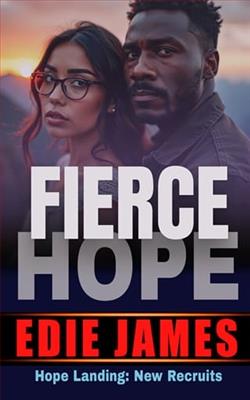Page 148 of When I Picture You
38
Huddled under a faux-fur throw on a flight to New York, Lola scrolled through video after video by creators with pride flags in their usernames. She wanted to watch them herself, even though Cassidy and Eli strongly discouraged it. It was a small number of queer fans, Eli argued, who were up in arms about “Starcrossed”—though, in the two weeks since the song dropped, they’d only gotten more outraged.
Lola dug a nail into an already-inflamed cuticle as she watched another critique. Lola Gray had been leading queer fans on for years, the creator argued, hinting at queerness just enough to stir her fans into a frenzy for her own clout. But she didn’t see herself as part of the queer community. If she was one of them, wouldn’t she come out and say it? Her queer fans didn’t want more hollow, queerbaiting songs like “Starcrossed.” The commenters agreed.
Tears stung her eyes, but she couldn’t stop. Lola had taken a lot of criticism in her career. She had legions of haters who acted like despising her was a personality trait. She’d gotten death threats. She had critics who treated reviews of her albums like an exercise in creative insults.
This felt worse than all of it: a rejection from the community she so wanted to join, but hadn’t allowed herself to approach.
It was wrong, obviously, to pressure anyone to come out. Thesesame fans had done just that for years, and Lola had resisted. They’d said that it would mean something to them for Lola to come out. She couldn’t blame them now for accepting as truth what she’d always projected in her image.
Cassidy fell into the seat opposite Lola and passed her a tissue. Lola blew her nose loudly.
“Some of them are defending you,” she said, and handed Lola her phone.
In the video, a young woman argued passionately that Lola had the right to be closeted, that she was doing her best, and everyone’s coming-out story was different. Her own story, the creator said, had been hard. She was eighteen, from Missouri, and her parents had kicked her out when she came out as trans; now she was starting community college living with friends.
Lola’s tears stopped. Suddenly, she felt too hot under her throw, in her label’s jet.
She looked Cassidy in the eye and said, “This isridiculous.”
“What?”
Lola thrust the phone back at Cassidy, the throw falling to the floor. “This is ateenagerwho’s practicallyhomelessbecause her parents can’t deal with the fact that she’s trans, and she’s spending her time and energy defending me? I’mLola fucking Gray! I should be defending her.”
A wave of self-disgust crashed over her. For years, she’d been so obsessed over what coming out would mean for herself and her career that its significance for anyone else was an afterthought. She was terrified that the queer community would reject her and, now that they had, she had to admit they were right. She’d never done anything for them. It was just like Chloe had said, when Lola was meant to be the one doling out advice: queer women in the public eye had a responsibility to be visible. Lola convinced herself that givingto charities and posting pride-month messages was enough. That had been naive—no, worse, privileged and ignorant. She’d never allowed herself to connect to the problems of the queer community, because she could hold herself separate from it. She’d had the audacity to sulk when she didn’t feel accepted, when she’d only been brave enough to call herself queer for a few weeks. And through all that, her queer fans stood by her. Those fans deserved more. They deserved to find solace and joy in her music, and to save their energy for fights that mattered.
“DM that creator and ask what she needs. Rent money, tuition. Anything,” Lola told Cassidy.
“For real?” Cassidy said. “Cool.”
If she wanted to be part of that community, to be accepted by it, she had to stand up for it. She had to give them something in return.
“I want a meeting with my accountant,” Lola said. “Today.”
39
Renee booked a glitzy Sweet Sixteen for mid-February on a word-of-mouth recommendation after her first bat mitzvah. It felt good to be filming again, now that she wasn’t racked with guilt and stress. Sure, the videography of this party wasn’t making it to the Criterion Collection, but itmatteredto these people. The birthday girl cried with happiness, her friends showered her with hugs, and her dad gave a speech about how proud he was of the young woman she was becoming, which brought a tear to Renee’s eye too.
Once the dancing started, the DJ played a lot of Lola’s songs. Renee just clenched her jaw.
When “Star Sign” came on, the girls went bananas.
Renee willed herself not to avoid the pain of hearing it. She trained her camera on the birthday girl, capturing how she and her friends sang every word.
Then “Starcrossed” played. Of course it did.
For a moment, Renee was lost in memories. This song was precious, and like most precious things, Renee’s love for it threatened to overwhelm her.
But when she forced her attention back to the action on the dance floor, Renee found herself grinning. The girls were really losing it now, the boys forgotten. They were grabbing each other’s hands andspinning in circles and clutching their chests as they belted out their own hopes of finding love like Lola had.
The song brought them so muchjoy. They didn’t care who it was about, or that its love story had ultimately fallen apart, or even that it was pretty queer, if you knew what to listen for. Renee could tell that the girls would love this song forever. They’d listen to it when they ached over a crush or fell in love or got their hearts broken. They’d remember the ecstatic belonging they felt right now, dancing in their party dresses with their best friends. They might even play it for their own little girls one day.
The song would always be Renee’s—after all, she could play back memories of almost every scene Lola referenced in her lyrics—but it wastheirsnow too.
As “Starcrossed” wound down, Renee realized she really did have those recordings. She’d filmed almost all the moments that Lola had included in the lyrics.
Once Renee had imagined it, she couldn’t get it out of her mind. She knew exactly how the fragments of footage would piece together. She’d surrendered the hard drives with the film’s official footage back in L.A., but she’d backed up a lot of it on her own drive as a precaution, plus she had everything she’d shot on her phone or her own camera.















